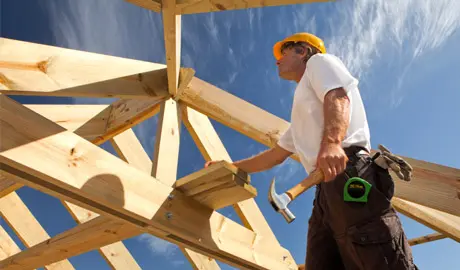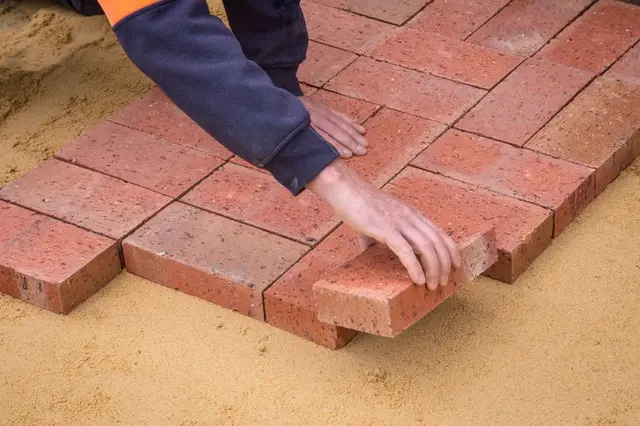
Reinstatement Costs – Are you confident your home is adequately insured against unexpected damages? You might be surprised to learn that a staggering 80% of properties are underinsured, leaving homeowners vulnerable to financial strain when disaster strikes.
With building material prices skyrocketing by 54.5% since 2015, ensuring your insurance policy accurately reflects current reinstatement costs has never been more crucial. Dive into our comprehensive guide to understand why your property’s market value differs significantly from its reinstatement cost and how this knowledge can protect you from unforeseen expenses.
Don’t wait until it’s too late – empower yourself with the insights needed to safeguard your most valuable asset!
Reinstatement Costs Fast Facts:

In simple terms, reinstatement costs refer to the total cost required to rebuild your home or property to its pre-loss or damaged condition in the event of a loss. This applies to more than just the bricks and mortar. It also considers fixtures and fittings, car parks, and landscaping.
These costs must be correctly calculated in your insurance policy so that insurers can pay the correct amount in case of a claim.
Often, homeowners mistakenly believe that their property’s market value and the reinstatement cost are the same. The reinstatement cost might be higher than the market value, especially for older properties in a conservation area or listed buildings.
Read about Betterment in insurance.
What Oakleafe Clients Say:


Additional Costs for Special Properties: If your property is located in a conservation area or listed building, you might face other constraints and costs. Working with a qualified surveyor who understands the unique requirements and can give an accurate valuation is advisable.
Changes in labour demands can have a large impact on reinstatement costs.
According to the Builders Merchants Federation, demand for building materials and labour remains strong, but there are the first signs of a slight shift in the balance of demand. Some regions report declining retail sales for DIY and home improvement projects, compensated by higher trade sales volumes. The insurance claims tender processes almost become obsolete when submitted, with most contractors suffering from underpricing the moment they become approved.
The good news is that the supply chains remain stable, with full production and good availability of most products. Supply challenges continue to affect bricks, air crete blocks, roof tiles, gas boilers, plastic drainage, other plastic products dependent on polymers, and some electrical products, particularly those using semiconductors. The policyholder must be made aware of these potential delays to a claim.
The rate of inflation remains a major concern. There are reports that some suppliers are only willing to hold quotes for tender prices for 24 hours. The resulting uncertainty is that contractors are unwilling to commit before entering fixed-price or long-term contracts. Insurers are aware of this cost leakage and should pass on the cost of the delays or rising prices.
As highlighted in previous statements, energy price volatility has begun impacting the market. Some manufacturers of energy-intensive products are now warning of surcharges linked to energy costs. This issue is not limited to the UK; the energy cost impacts European manufacturers, with reports of cement plants in Spain closing due to the latest increases. However, UK manufacturers can manage stocks and the supply chain for continued supply.

UK brick and block stocks have also increased slightly during the quieter winter months, but as the market accelerates in the spring, builders will need to plan ahead and work with manufacturers to ensure timelines of availability.
Costs of bricks have increased slightly over winter, subsequently boosting reinstatement costs.
Unprecedented demand and supply chain challenges for steel, cardboard, plastics and electronic components have also impacted the boiler market. While availability will remain constrained over the summer months, manufacturers remain hopeful that the supply and demand will normalise by the end of the year.
Regarding plastic products, there are reports in some areas of shortages of raw materials that could lead to price spikes, but indications are hopeful that such matters may be sorted later in the spring.
Paints and coatings continue to be affected by ongoing raw material shortages, recently exacerbated by further lockdowns in China and the war in Ukraine. This will likely affect prices and possibly the availability of some products over the coming months.
After a turbulent 18 months, timber presents a positive picture with stable prices, plenty of stock in the UK, and fewer problems reported with the ports and haulage. We note, however, that the market for MDF (medium-density fibreboard) has seen marked price increases due to the soaring cost of oil derivatives, which are key components in MDF resins and the melamine surfaces applied to such panels for use in kitchen and bathroom furniture. The rise in the prices of many materials will consequently increase the cost of reinstating properties.
Looking ahead, the war in Ukraine and the resulting sanctions on Russia and Belarus will likely constrain the supply of pallets, birch plywood and OSB (oriented strand board). These countries are major suppliers of pallet wood and manufactured pallets and large producers of the components of the resins used in wood-based panel manufacture, including OSB. Russia is also one of the main sources of birch plywood, used in various applications from transport and shop fitting to furniture and die cutting.
Other product areas that may be affected by the Russian invasion include ceramic tiles and sanitary ware, as Ukraine is a main source of supply for kaolin used in their manufacture. As reported previously, this group is also actively monitoring the indirect impact of sanctions on Russian steel, including heavy plates, coils and slabs intended as upstream products for the EU market. Any shortages on the continent could knock on the UK market.
The invasion of Ukraine has had a big impact on the supply of many different materials.
The war is already impacting the global shipping industry. Many countries have banned ships associated with Russia. More widely, shipping lines are suspending or changing bookings because of sanctioned cargo, and congestion at ports is increasing owing to more stringent customs checks. In addition, Ukrainian and Russian nationals account for 15% of the global shipping workforce; with President Zelensky calling for all Ukrainians to return to fight, a severe workforce shortage could soon become apparent.
Read about Act of God Insurance.
Ensuring you have the correct insurance cover that accurately reflects your property’s reinstatement costs is vital. A common pitfall for many homeowners is underinsuring their homes. This means their building insurance covers might fall short of the actual rebuilding costs for loss or damage.
While you can find online tools supported by British insurers to give you a ballpark figure, the best approach is to consult a professional. A qualified surveyor can assess your property, considering the cost of materials, labour, and any unique features your home might have.
It’s especially essential for homeowners of older properties or listed buildings. Such properties might have particular architectural features or use harder-to-source materials, influencing the buildings’ value. In such cases, a qualified surveyor’s accurate valuation can be the difference between being adequately insured and facing financial challenges.
Remember, the building’s declared amount should accurately reflect the cost to rebuild, not necessarily what you paid for your home or its current market value.
Regularly reviewing your reinstatement cost assessment ensures that you’re always adequately covered.
With fluctuating material prices, changes in building regulations, and other unforeseeable factors, it’s paramount to keep your sum insured up-to-date.
When in doubt, always turn to professionals, be it for a quote on home insurance or to gain an in-depth understanding of how best to safeguard your home.
If you need to make an insurance claim, do not hesitate to contact us, and one of our highly trained staff will be in touch to discuss your situation and explain how we can help.
Oakleafe Claims have represented policyholders and managed their insurance claims since before the First World War. We have vast expertise and experience in both domestic and commercial insurance claims, including riot claims, with thousands of satisfied policyholders who have received their deserved insurance settlement. With no upfront fees required, our internal data shows that insurance claims managed by professional loss assessors like Oakleafe can expect a settlement up to 40% higher than claims managed by the policyholder.
What Oakleafe Clients Say:



Please complete the form and one of our insurance claim professionals will call you back ASAP